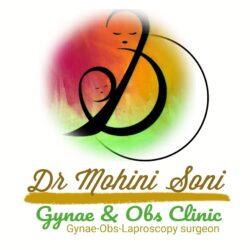Ovarian cysts are a fairly common concern among women of reproductive age. In many cases, these cysts are harmless and disappear naturally. However, some can lead to symptoms like pelvic pain, bloating, irregular periods, or complications that require medical intervention. This is where laparoscopic surgery for ovarian cysts comes as an effective and safe treatment option.
Unlike traditional open surgery, laparoscopy is a minimally invasive technique that not only removes the cyst but also ensures quicker healing, minimal discomfort, and better outcomes. Women often prefer this procedure when guided by the best gynecologist in Delhi, especially if they are planning a pregnancy or already seeking pregnancy care in Delhi.
For those looking for advanced yet patient-friendly care, laparoscopic surgery in Vasant Kunj is a highly recommended choice, offering expert treatment with modern technology while focusing on preserving women’s health and fertility.
What is Laparoscopic Surgery for Ovarian Cysts?
Laparoscopic surgery, also known as keyhole surgery, is a modern surgical method where small cuts are made in the abdomen instead of one large incision. Through these tiny incisions, a thin tube with a camera (laparoscope) and surgical instruments are inserted. The surgeon views the ovaries on a screen and carefully removes the cyst while preserving healthy ovarian tissue.
Why is Laparoscopy Effective for Ovarian Cysts?
- Minimally Invasive Procedure – Unlike open surgery, laparoscopy uses small incisions, which means less pain and minimal scarring.
- Faster Recovery – Most women can return to daily activities within a week, compared to longer recovery periods in traditional surgery.
- Less Risk of Complications – With advanced techniques, the chances of infection, bleeding, or adhesions are much lower.
- Preserves Fertility – The procedure aims to remove only the cyst while keeping the ovary intact, which is especially important for women planning a pregnancy.
- Better Precision – The high-definition camera gives surgeons a clear view, ensuring precise removal of the cyst.
When is Laparoscopic Surgery Recommended?
Not every ovarian cyst requires surgery. Laparoscopy is usually suggested when:
- The cyst is large or growing rapidly.
- It causes persistent pain or discomfort.
- It looks suspicious on ultrasound.
- It doesn’t go away after medication or observation.
- It affects fertility or menstrual health.
What to Expect During Recovery
Most women recover quickly after laparoscopic ovarian cyst removal. Mild abdominal pain, bloating, or shoulder pain (due to the gas used during surgery) is common but usually subsides in a few days. Doctors often recommend light activity and avoiding heavy exercise for a short period.
With proper care, women can resume normal life soon and experience significant relief from symptoms caused by cysts.
Final thoughts
Laparoscopic surgery is a safe, effective, and fertility-friendly treatment for ovarian cysts. It reduces recovery time, causes minimal discomfort, and allows women to get back to their routine quickly. If you are struggling with ovarian cysts and wondering about treatment options, consulting an experienced gynecologist can help you decide whether laparoscopy is right for you.
FAQs
- Is laparoscopic surgery painful for ovarian cysts?
No, it is performed under anesthesia. Post-surgery discomfort is mild and manageable with medicines. - How long does it take to recover from laparoscopic ovarian cyst surgery?
Most women recover within 1–2 weeks, which is much quicker than traditional surgery. - Can I get pregnant after laparoscopic surgery for ovarian cysts?
Yes, fertility is usually preserved since only the cyst is removed, not the ovary. - Are there risks with laparoscopy?
As with any surgery, there are minor risks, but laparoscopy is considered very safe with fewer complications compared to open surgery. - Will the cyst come back after surgery?
Some women may develop new cysts in the future, but regular check-ups and timely treatment help manage the condition effectively.

